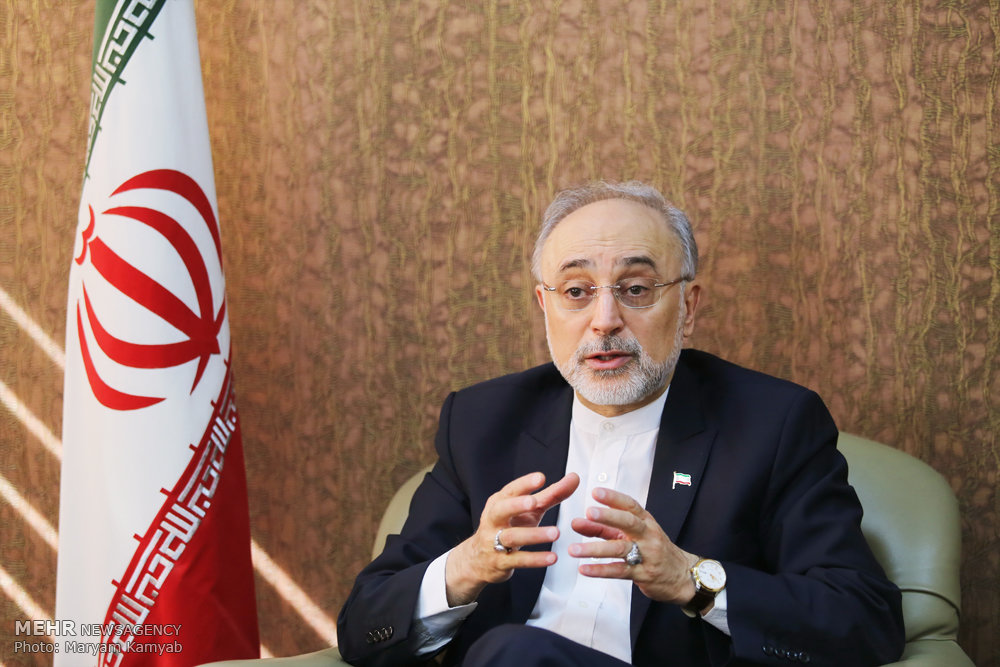West failing to deliver nuclear deal commitments: Iran’s Salehi

Ali Akbar Salehi attacks lack of progress on banking transactions and trade eight months after implementation day (January 16).
Iran has fully complied with its commitments under last year’s landmark nuclear agreement, but eight months after the official removal of sanctions, the West is failing to deliver on its promises, the country’s vice president has told the Guardian.
Ali Akbar Salehi, the head of the country’s Atomic Energy Organization, said that if the agreement was to remain intact, both sides had to meet their commitments.
The U.S.-educated scientist, who also served as a former foreign minister of Iran, was the second most senior Iranian negotiator in nearly two years of talks between Tehran and world’s six leading powers that led to the final nuclear accord, known as the joint comprehensive plan of action (JCPOA), in Vienna in July 2015. The deal was implemented in January, and triggered the removal of sanctions.
“As has been stated by the International Atomic Energy Agency (IAEA), Iran has remained committed to its commitments,” Salehi said. “While the other side – it’s very clear now to public opinion and it’s not a secret – has not really delivered on the promises; that the sanctions would be removed and that banking transactions would go back to normal, that trade would speed up and economic relations would be enhanced. These have not been materialized to the extent that we expected.”
Salehi says if the agreement was to remain intact, both sides had to meet their commitments.Salehi, who speaks fluent English, dealt with the technical aspect of the agreement while negotiating with his U.S. counterpart, Ernest Moniz, who, like Salehi, studied at the Massachusetts Institute of Technology. The Iranian vice president, who was in London to speak at the World Nuclear Association symposium, also met on Thursday with the chancellor of the exchequer, Philip Hammond, who negotiated with Iran while he was the foreign secretary under David Cameron.
Although nuclear-related sanctions were lifted in January, big European banks remain reluctant to do business with Iran. European banks are concerned about existing US sanctions as well as uncertainty in the U.S. before the election of a new president.
Salehi said he had a good relationship with Hammond and that the chancellor had sounded positive during their meeting. “He stated that they have this file on their agenda, and that they are pursuing the issue very seriously, and they are trying to improvise ways and means that would remove the impediments that lie ahead of this banking cooperation with Iran,” he said
The banking issue has prevented Iran from capitalizing on the interest shown by Western businesses in returning to the country, or finalising lucrative deals with the West, such as the purchase of planes from Airbus and Boeing. Iran’s central bank chief told the Guardian in May that Tehran was still locked out of global financial system.
Salehi said the nuclear agreement was in the interest of both Iran and the West and that it would be a pity if it was derailed. “JCPOA can set up a new political and diplomatic paradigm in resolving major international crises, so it’s incumbent upon both sides to do their best, to keep the integrity of this deal and not let it break down.”
The Iranian vice president, who views the nuclear deal as a diplomatic success, warned about attempts to rewrite the nuclear deal and impose excessive demands. “We see, on and off, that there are some demands from the other side, that those demands go to some extent beyond the JCPOA. At the same time, we see that the other side has not fully delivered its promises, like the issue of big banking doing business with Iran ... If there is a demand of overcompliance then things would get more complicated.”
Salehi also attended a meeting with journalists and diplomats at the European Council on Foreign Relations in London, where he said harder times might be facing the Iran nuclear agreement in the light of the U.S. presidential campaign.
“There are hints to do away [with] or to rewrite the deal, and on the other hand, to unilaterally impose excessive oversighting and overcompliance to the point of Iran’s discouragement and ultimate submission,” he warned. “Our supreme leader once stated: ‘The Islamic republic will not primarily breach the deal,’ but at the same time, I do not overrule the threats that may endanger the deal.”
Salehi refused to comment on the presidential candidacy of Donald Trump, saying it was an internal issue of another country. “The political credibility of the U.S. will be undermined if they take any measures that would jeopardise the JCPOA – to best of my knowledge the European Union is very supportive and Chinese and Indians and [the rest of] the international community are all very happy,” he said.
He believed the JCPOA would remain untouched but he also said he was crossing his fingers. “The world would be safer if, besides contemplating peace, we endeavour to attain it.”
Relations between Tehran and London have significantly improved since the nuclear agreement, with both sides appointing new ambassadors in their respective capitals this month after nearly a five-year hiatus.
(Source: The Guardian)
Leave a Comment